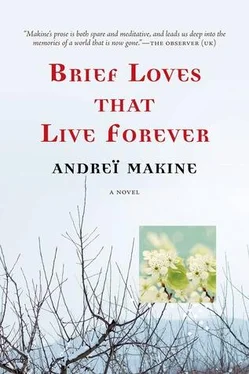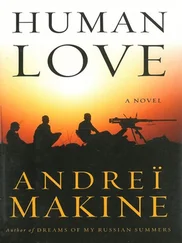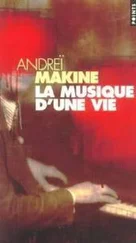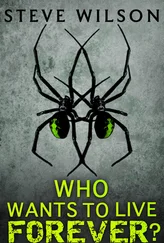… When love affairs no longer lay claim to the uniqueness of a grand passion, the poisoned chalice they have to offer is a delicious nonchalance about our feelings. At this stage in our youth we are still too carefree to realize this constitutes agnosticism. What we relish, above all, is the emotional and physical ease with which relationships are formed, flower, give way to the next. Instead of the solemn amatory monotheism of adolescence, with its ecstatic organ music, we are relieved to discover the aimless, multiple idolatry of inconstancy. We learn to whistle Bach …
This was even truer for those of us who, during the twilight of the messianic Soviet project, wanted to forget the creaking solemnity of its theatrical scenery. My impassioned quest for the fraternal society had long since been set aside along with the dusty relics of other childish dreams. We had got the message: all that mattered was to enjoy life and, in order to avoid getting caught up in the grim rituals of a petrified ideology, we had to skip, airborne as an acrobat on his tightrope, from one love affair to another, from one fleeting pleasure to the next …
The red glow of the bus disappears around the corner and I prepare to walk home, still intoxicated with a love unencumbered by the weight of passion.
And it is almost at random, with an absentminded glance, that I notice a contorted figure slipping through the terminal. My recall is instant: I know that young man. For years I have contrived to avoid him …
I could ignore him again on this occasion. He has certainly seen me: he just had time to spot the two of us together, our quick kiss, my girlfriend’s lithe dash to board the bus. He also knows I have noticed his presence and am hesitating over greeting him. I am certain he will not do so first, out of shyness and a remnant of pride … Three-quarters turned away from him, I can let him go on his way without feeling too much remorse.
What impels me toward him is a combination of generosity and conceit: true, I genuinely feel sorry for this fellow, but hailing him is also a way of relishing my luck in being a brilliant lover, a lethargic dandy, on a high after a long night of love …
I swing around and yell, with exaggerated surprise, “Hey, Zhorka! So, don’t we recognize old friends anymore?”
If men had hearts of steel, Zhorka would have told me to get lost, mentioning all the times I had avoided him, all the encounters missed when I walked past without stopping, looking the other way as he went on sweeping outside the furniture factory where he worked. On such occasions he must have followed me with his eyes for a long time, telling himself by way of consolation that perhaps I had not recognized him …
He turns and his disfigured face registers an innocent delight. To be greeted in the street by a friend like this is too rare an event for him to allow himself to spoil it with any rancor. The people waiting at the bus stop watch us going up to one another, and deep down inside me a brief, selfish regret wells up. “I shouldn’t have done this … It’s too much effort!”
His story is a simple, brutal, and unbearably stupid one. He was born in the decade following that of the war. Our generation: the children who came into the world ten, eleven, or twelve years after the end of the fighting. The distance that separated us from the war then seemed to us immense. As time passed, I would come to realize that those ten years were nothing; the war was still on the prowl, in the mutilated bodies of soldiers, in the danger of abandoned ammunition, which we often unearthed in our games on former battlefields … One day there was this huge shell we found in a trench. We had dragged it out to deal with it in our usual way: a bonfire, with this steel firecracker slowly heating before exploding and shaking the earth beneath our bodies as we lay in wait in a nearby copse. That night there was an icy mist, the fire was slow to catch, what was needed was for someone to get close to it and toss in some dry bark. None of us was foolhardy enough to do so; the shell had been cooking for a long time. Then Zhorka got up, went down into the trench, poked the fire, even had time to take several steps away from it … The noise deafened us and it was in the muffled silence caused by the explosion that a perfectly still image appeared: a small human figure poised amid the clods of earth hurled skyward … Then life began to move again but at what seemed like a sleepy tempo. The dust fell to the ground, we were walking toward the trench as if against the current of time, and I saw a trickle of blood flowing very gently down the trunk of a young tree stripped of its bark by the shrapnel … After several operations our comrade became the way we knew him now, a cripple whose face would remain partly calloused by the fire, a young hunchback confronting the world with the mournful stare of his right eye and a terrifying stare from his glass left eye. He also retained his diminutive name, “Zhorka,” which kept him locked forever into that spring evening when his childhood ended, not to launch him out into adolescence but thrusting him aside onto the verges of life in a dull continuation, without savor, where the transition from one age to the next made no difference.
“Where are you off to, then?”
I put on a hearty voice, as people do when trying to cover up their embarrassment at addressing a social outcast.
“Oh … to the station. You see, I’m going to pick morels …”
His voice is also too loud for this humdrum exchange. The unblemished side of his face turns a little pink. For a moment he has ceased to be any different from other people, someone has greeted him in the street, he has stopped and is talking quite naturally to an old chum.
“Ah, morels, I see. So, are you very keen on them?”
“No, the fact is … I sell them. That sometimes makes me an extra ten rubles a month …”
This confidence embarrasses him, he looks down, mutters, “Well, anyway. Good to see you. I’d better go and get my train. I’ll see you around …”
He gives me his hand, walks away. And he is palpably making a superhuman muscular effort not to reveal his limping gait. The thick shoe on his right foot drags against the asphalt but his shoulders are straight, from a distance his disability would not be noticed …
I catch up with him at the entrance to the train station.
“Listen, I’m coming with you! It’s ages since I went mushroom picking. And, as for morels, I wouldn’t begin to know where they grow …”
He tries to reply but he has a lump in his throat, he merely nods his head in agreement and shows me his basket, emitting a grunt, both happy and embarrassed. We settle into a little local train in which the wooden seats are occupied by town dwellers who are off this Sunday to dig their vegetable plots in the nearby countryside.
I am intoxicated by my role as a male juvenile lead sharing a little of his good fortune with a pariah. I talk with vibrant energy so that everyone can hear us, so that this little hunchback, crammed in opposite me, should enjoy half an hour of illusion and oblivion. I manage to hit a chatty and theatrically natural note that turns our talk into an everyday conversation between two friends of the same age. I refer to our school-day memories, mention several girls’ names.
“Do you remember Kira, the one we called Red Riding Hood, who used to dance like a madwoman? And her friend Svetka? You drew a picture of her on the blackboard. Do you remember?”
This is ancient history, from before the explosion. I am talking about our radiant childhood, laughing, joking, almost managing to erase the gulf between his two lives. And with a delight that is becoming less and less selfish, I notice our neighbors are gradually letting themselves be hypnotized by the gaiety of our chat. I am no longer intercepting alarmed or pitying glances like those directed at my friend during our first minutes of travel. People are no longer paying him any attention, they read their newspapers, yawn, address one another absentmindedly, look out the window. Zhorka’s voice is relaxed now and only a particular attentiveness could detect the hidden tension, like the stage fright behind the smile of a young singer blinded by theatrical lighting.
Читать дальше









